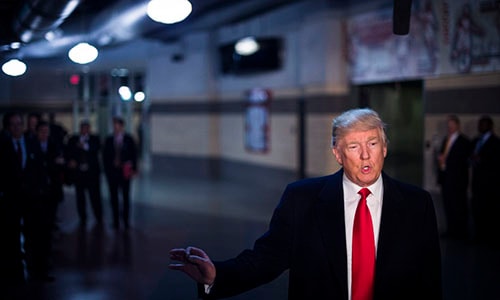Japanese expert warns of risks in the East Sea when Trump takes office
If US President-elect Donald Trump challenges China on the Taiwan issue or pursues a policy friendly to Beijing, the situation in the East Sea could worsen.
 |
It is unclear how far Donald Trump will challenge China on the Taiwan issue. Illustration photo: AFP |
"In case the US does not respect the 'One China' policy, Beijing will immediately take a strong provocative move against Washington. China's militarization activities in the East Sea will be increased to show its readiness to respond to the US with weapons," a Japanese security expert predicted when talking to VnExpress in Tokyo.
US President-elect Trump asked the question on December 11whether Washington should continue to recognize the "One China" policy if Beijing refuses to make concessions on trade.Mr. Trump also said that China did not cooperate with the US in dealing with currency issues, North Korea or tensions in the East Sea.
The very next day, according to the Japanese expert, China conducted naval and air force exercises in the East Sea, using missile batteries. That showed that Beijing was ready to use weapons to respond to Washington.
In addition, the US accused China on December 15 of "hijacking" a US diving device that was conducting a survey in waters 160 km northwest of Subic Bay, Philippines. The Pentagon requested the device. Beijing has not yet commented on the incident.
"I think the US government will never achieve anything with China by bargaining over the Taiwan issue, because this is one of three areas that Beijing will never make concessions, along with the autonomous regions of Xinjiang and Tibet," said the Japanese expert.
If Donald Trump does not "pick a fight" with China, this expert compares this to having "no different" importance than the event.Richard Nixon,tfirst US president to visit Chinain 1972, a milestone that helped normalize relations between the two countries.
"What I'm concerned about is if Mr. Trump puts the issues with China on the table.negotiate, will it be the Taiwan issue, the East Sea or the East China Sea? Because as a businessman, Mr. Trump always makes deals," said the Japanese expert.
In addition, there are also questions about whether Donald Trump will include the East Sea and East China Sea issues in his new Asia pivot policy, what Washington's policy is on protecting freedom of navigation, whether US ships will enter the 12-nautical mile zone of Chinese-constructed entities in the East Sea, and whether Trump will respect the ruling of the International Court of Arbitration in the Philippines' lawsuit against China.
Sharing concerns about developments in the region,Another researcher also working in Tokyo,The US is expected to reduce its presence in Southeast Asia.
"I think Southeast Asia will not be as important to the US as it was during President Barack Obama's term. Donald Trump will value bilateral cooperation more than multilateral cooperation," the researcher said.
However, he also mentioned two factors that could bring "good news" to Asia, namely Donald Trump's choice for the position of defense secretary,retired general James Mattis,and Mr. Trump's invitation to visit the United States for Philippine President Duterte. With the advice of Mr. Mattis,A prestigious person in the US Marine Corps because of his tough statements, Trump does not negotiate on every issue, but must "maintain the color" of the Republican Party, affirming that the US is the world leader in military and defense power.
"For Southeast Asia, some people think that it is impossible to expect Mr. Trump to be present at the East Asia Summit (EAS), within the framework of ASEAN and partner meetings, but some others are optimistic, expecting that Trump and Mr. Duterte will resolve some of the difficulties between the Philippines and the US under the Obama administration," the researcher said.
According to VNE
